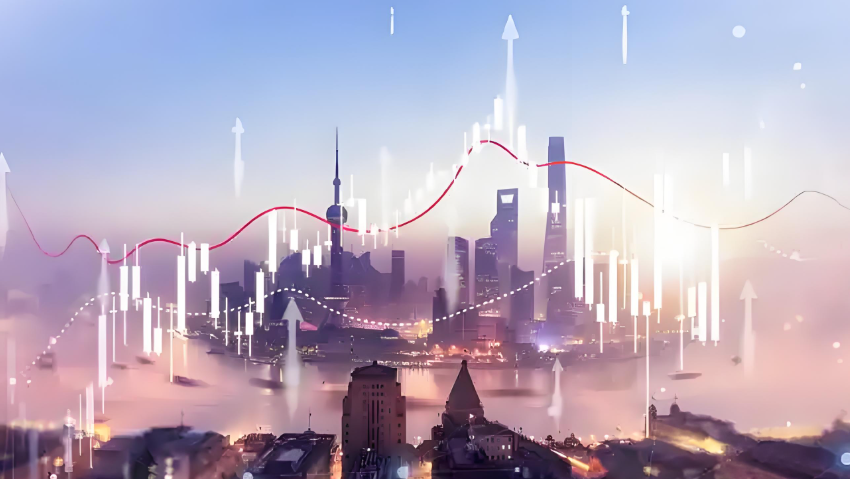Germany's Economic Dilemma
Advertisements
The dynamics of Germany's economy have recently become a focal point of concern, as the country has struggled with a protracted phase of stagnation. Addressing the critical question of what choices Germans will make in the face of economic downturns, geopolitical conflicts, and multiple pressures from the U.S. government has never been more urgent. The financial landscape in Germany appears to reflect broader issues that plague the nation, revealing the intricate web of challenges that are increasingly evident as the world grows more interconnected and volatile.
Over the last five years, Germany has not experienced significant economic growth. The projected downturn for 2023 and 2024, where the country is likely to see consecutive years of economic contraction, raises alarms regarding its status as Europe's economic powerhouse. The disturbing reports of major companies laying off employees further hint at deeper structural issues festering within Germany's economic framework. Reflecting on these developments, it is crucial to understand what has led to this predicament.
At the heart of Germany's ongoing economic struggles lies a stark realization that the challenges have become magnified due to instability and fluctuations in the global economy and geopolitical ecosystem. According to various economic experts, this isn't merely a reflection of the national economy, but rather a symptom of systemic issues regarding how Germany perceives its relationships with other global economic players. This introspection is particularly relevant as Germany engages with emerging economies in Asia.

During a recent annual meeting of the German-Asian Business Association in Hamburg—a leading forum in Germany representing business interests in Asia—discussions centered around shifting economic dynamics. One notable voice in these discussions, an Asian affairs expert, remarked that we have undeniably entered the "Asian Century." Such statements underscore the need for German businesses to reassess their attitudes towards superpowers like China and India. The notion of economic decoupling appears impractical. In a world where scale, production capabilities, and the potential for innovation are paramount, detaching from significant markets is unwarranted and detrimental. To sustain its international competitiveness, Germany must therefore navigate these challenging waters with an eye toward collaboration and partnership.
The expert stressed that the sources of Germany's economic competitiveness—fueled by innovation, robust infrastructure, and a dedicated workforce—have sadly eroded in recent years. He exemplified the situation by highlighting the now-frequent decision by German firms to establish their latest production facilities abroad, rather than remaining on home soil. This shift not only raises questions regarding the effectiveness of Germany’s economic strategies but also casts a long shadow over the country’s prowess in technological readiness. Existing bureaucratic hurdles and a lack of accessible financial support have further hampered the development of innovations necessary for Germany's industrial success.
Amidst this bleak scenario, the researcher argued that a critical change in societal attitudes is also required. The perception of performance and ambition within the workplace must undergo a radical transformation in Germany. Many individuals yearn for the opportunity to make impactful contributions and reshape the world, yet they often find themselves disillusioned and restrained by the prevailing socio-economic conditions.
Part of the frustration stems from entrenched bureaucratic practices that stifle entrepreneurial efforts. Many voices in the discussions have pointed out that navigating the bureaucratic landscape can be an arduous task. For instance, a new business owner in Germany could be left waiting for months just to secure a company license, despite having submitted all necessary documentation. The inefficiencies of the system seem to invite comparisons with the more streamlined approaches increasingly adopted by nations from Central and Eastern Europe.
A particularly illustrative case involves the difficulties faced by business founders who are comprised of both German and non-German nationals. In such scenarios, securing a banking partner for opening a corporate account might require navigating a maze of over twenty banks, which prolongs the process indefinitely. Furthermore, exporting goods from Germany to countries like Sweden has become marred with complications requiring rigorous documentation and constant verification of legitimacy. Such red tape not only frustrates current entrepreneurs but may dissuade potential foreign business collaborators.
However, change is not only possible but essential. The insights shared by attendees at the association meetings reflect a growing consensus that political will and societal awareness must align to catalyze meaningful reform. In the wake of elections in early 2025, significant investments in Germany’s sagging infrastructure along with ambitious initiatives in green energy, digitization, and transportation must take precedence to reinvigorate the economy. Additionally, boosting Germany's military and defense capabilities and reducing operational costs for businesses would create a fertile ground for innovation and investment.
The urgency of these reforms highlights a long-standing pattern of neglect or misjudgment towards critical issues that have, for too long, been overlooked in German policy discussions. The automotive industry stands as a powerful testament to the implications of these unresolved issues on a global stage. Yet the most profound challenge lies not in the realm of financial resources, but in overcoming the prevailing mindset within German society and its political leaders. Instead of grappling with whether to adjust work-life balances and benefit entitlements, decision-makers need to focus on an overarching vision that will steer Germany toward a future shaped by profound global transformations.
Germany stands at a crossroads and the decisions made in the near future will resonate across its economy and society for generations to come. As the country endeavors to reposition itself in a competitive global market, it must embrace innovation, foster a culture of energetic entrepreneurship, and streamline its bureaucratic processes if it hopes to reclaim its status as an economic leader in Europe and beyond.
Leave a Reply
Your email address will not be published. Required fields are marked *